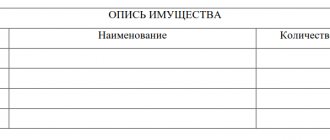New edition of Art. 90 Residential Complex of the Russian Federation
1. If the tenant and members of his family living with him for more than six months without good reason do not pay for housing and utilities, they may be evicted in court with the provision of another residential premises under a social tenancy agreement, the amount of which corresponds to the size of the living space established for moving citizens into the hostel.
2. If the cohabitation of citizens deprived of parental rights with children in respect of whom they are deprived of parental rights is recognized by the court as impossible, the law of a constituent entity of the Russian Federation may provide for the eviction of these citizens in court at the request of the legal representatives of minors, the guardianship and trusteeship authority, or prosecutor to another residential premises under a social rental agreement, the size of which corresponds to the size of the residential premises established for moving citizens into a hostel.
The parties to the management agreement may refuse to renew it upon expiration of the document.
In case No. A51-21536/2019, one of the management organizations of Primorye sent notices to the owners, the municipality and the GZHN body that it would not renew the house management agreement. On the basis of this application, the State Housing Property Inspectorate made changes to the register of licenses of a constituent entity of the Russian Federation, excluding the house from the management of the UO.
But one of the residents of this apartment building complained to the supervisory authority, pointing out that no one is now involved in maintaining the house or repairing the common property of the owners. The State Housing Inspectorate conducted an unscheduled inspection, drew up a report and sent an order to the management authority. The GZHN body demanded that the company, on the basis of Part 3 of Art. 200 Housing Code of the Russian Federation continued to manage the house until the owners choose another management entity, create an HOA, or the municipality holds an open competition.
The management organization considered that such requirements violated its rights and were contrary to the law. She filed a lawsuit, asking that the order be declared illegal and canceled.
The management organization promptly notified the owners and the municipality that after the expiration of the management agreement, it would not be extended. The State Housing Authority, in turn, excluded the house from the company’s register of licenses. Consequently, the organization is not obliged to continue to manage the apartment building, because there is no corresponding agreement between it and the owners.
The State Housing Inspectorate indicated in court that the order was issued within the framework of the law. In accordance with Part 3 of Art. 200 of the Housing Code of the Russian Federation, the management organization is obliged to engage in the maintenance and repair of the house after its exclusion from the register of licenses, until the MKD has another management organization, HOA or cooperative to perform these functions.
On the implementation of the requirements of the Civil Housing Inspectorate after termination of the management contract
Requirements of Part 3 of Art. 200 residential complexes of the Russian Federation ensure continuity of house control when changing management
The dispute went to the appeal court. The management organization indicated in the complaint that for several years its expenses for maintaining an apartment building exceed the amounts received from residents for the maintenance and ongoing repairs of common property. Residents owed the management company more than 1 million rubles, so it did not renew the contract, notifying the owners and the municipality about this in the manner prescribed by law and the contract itself.
Since there is no longer an agreement between it and the owners, the amount of payment for the maintenance of housing has not been approved, the housing maintenance body cannot force the management authority to perform the responsibilities of managing the house without indicating the source of financing for such services. From the moment the house is excluded from the register of licenses, the company has no right to manage such a house.
But the appeal court, like the previous one, when making its decision again relied on Part 3 of Art. 200 housing complex of the Russian Federation. The judge indicated that this rule is aimed at respecting the rights of citizens, ensuring the safe operation of multi-apartment residential buildings and the continuity of management of the building and the supply of utilities to residents.
The owners of the premises did not choose a new management entity and did not create an HOA to manage the house. The municipality held two open competitions to select the company, but no one participated. Therefore, the court concluded that the plaintiff OA is obliged to manage the disputed house in order to ensure the safety and comfort of its residents.
It does not matter that the owners of the premises in the house have accumulated a large debt for housing and communal services to the company: these issues are not the subject of dispute. The legislation does not exempt the management company from fulfilling requirements in the field of house management due to the unprofitability of this work. The decision of the first instance remained in force.
Management agreement for an apartment building and methods for terminating it
When excluding a house from the register of licenses, the owners or the municipality must choose a new MA
The Court of Cassation, to which the UO filed a complaint, did not say anything new in the case, also relying on the norms of Part 3 of Art. 200 of the Housing Code of the Russian Federation as fundamental in resolving a dispute between a company and a body of the Civil Housing Inspectorate.
The management organization tried to point out to the court that forcing it to manage a house excluded from the license was illegal. Housing legislation does not impose such an obligation on the management company before selecting a new company if the management agreement has expired and has not been renewed.
According to Part 4 of Art. 200 of the Housing Code of the Russian Federation, the municipality, having received a notification about the exclusion of the house from the register of licenses, was obliged to convene a general meeting of owners of premises in the apartment building so that they could choose a new company or change the method of management. If the residents of the house do not accept a decision, an open competition is held (Part 5 of Article 200 of the Housing Code of the Russian Federation). If there are no people willing to take control of the house through a competition, the local government authority appoints a temporary management authority in accordance with Part 6 of Art. 200 housing complex of the Russian Federation.
The Court of Cassation agreed with these arguments of the plaintiff's administration, but still did not overturn the decision of the first instance. He indicated that the municipality is obliged to take all these actions. But until the local government does this, the company is obliged to manage the apartment building.
If the management company refuses to renew the contract, it should not manage the house until a new company is selected
In case No. A51-21536/2019, the Supreme Court of the Russian Federation made important conclusions for management organizations that companies can use to defend themselves in the courts:
- The management organization has the right to refuse to renew the contract with the owners. The company notifies them of this, and also informs the State Housing Authority and the municipality.
- After the exclusion of a house from the register of licenses, such a management authority no longer has the right to manage the house and the norm of Part 3 of Art. 200 of the RF Housing Code does not apply to it.
- The requirement to continue to manage a house after removing information about it from the register applies only to those companies that have lost their house or license due to violations in their work. The list of such violations is contained in Part. 5 – 5.4 tbsp. 198 Housing Code of the Russian Federation.
If the MA refused to renew the management agreement after the end of its validity period, and the State Housing Authority body made appropriate changes to the register of licenses, then the issue of managing and maintaining such an apartment building no longer concerns the former MA. From now on, it is a problem for the owners of the premises in the house and the municipality: it is they who must decide who will further be responsible for the proper maintenance of the common property in the apartment building.






